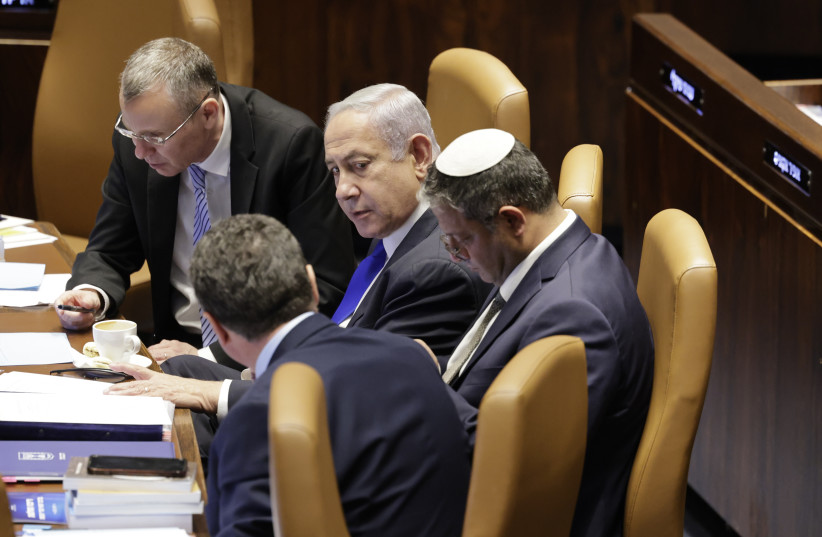In an unusually open critique of Israeli leadership, US President Joe Biden said in an interview on CNN broadcast on Sunday: “This is one of the most extreme cabinets I’ve seen – and I go back to Golda Meir.”
The remark came in response to a question as to why Prime Minister Benjamin Netanyahu has not yet been invited to the White House.
Biden pointedly noted that President Isaac Herzog is scheduled to visit Washington next week, making it clear that it is Netanyahu whom he is avoiding rather than the Jewish state as such.
“Bibi, I think, is trying to work through his existing problems in terms of his coalition,” the US president said.
Those problems obviously include Netanyahu’s cabinet’s positions related to the Palestinians. The Biden administration has notably avoided meeting with ministers from the far-right coalition parties, the Religious Zionist Party and Otzma Yehudit.

Last month, Israel’s announcement that it intends to advance plans to build 4,600 homes in Judea and Samaria (the West Bank) also drew sharp criticism from Washington.
Biden noted that he remains “one of those who believes Israel’s ultimate security rests in a two-state solution.”
The US president didn’t place all the blame on Israel, but more than implied that the current government’s stance and actions compound the problem of the Palestinian Authority (PA)’s weakness.
“I think that... the Palestinian Authority has lost its credibility, not necessarily because of what Israel’s done, just because it’s just lost its credibility, number one, and, number two, [because it] created a vacuum for extremism... among the Palestinians... There are some very extreme elements,” Biden said. “So, it’s not all Israel now in the West Bank – all Israel’s problem – but they are a part of the problem, and particularly those individuals in the cabinet who say, ‘We can settle anywhere we want. They have no right to be here, etc.’”
“Hopefully, Bibi will continue to move toward moderation and change,” he added.
Somewhat ironically, the remarks were published the same day the Israeli security cabinet voted to act to prevent the collapse of the PA while continuing to fight Palestinian terrorism.
The measures come after last week’s IDF counterterrorism operation in Jenin, which focused on Islamic Jihad and Hamas. The Israeli aim is for the PA to be strong enough to operate against those terrorist organizations, which also represent a threat to PA control in the West Bank.
Potential fallout of Biden's remarks
Biden’s remarks should raise alarms in Jerusalem. A public fallout at this level between the president of the United States and the prime minister of Israel could have a deeply detrimental ripple effect. It could cast a shadow over the strength of Israel’s relationship with the Abraham Accords partners and hinder efforts to broaden the accords to include other countries, particularly Saudi Arabia. It also gives hope to Iran and its terrorist proxies that Israel has fallen from grace.
Biden likes to remind Israelis that his relationship with the country goes back to the days of Golda. It adds to his credibility and emphasizes that he is speaking as a friend who cares. There is no doubt that Biden has been a friend and that the US is an essential ally for Israel, and vice versa.
The relationship between Israel and the US stems from mutual interests and shared values. That is the source of its strength and scope.
The ties between the two countries should not be dependent on who leads them, although this definitely plays a role. In countries where the head of state can change as a result of democratic elections, the bonds have to go beyond the personal. Nonetheless, it is clear that the current situation is neither beneficial to the US nor to Israel. Biden can bypass Netanyahu by inviting Herzog, but ultimately Netanyahu is being sent the message that he is – for now – persona non grata at the White House.
While Israel is entitled to determine its own domestic policy, the government must take into consideration the broader international ramifications of its actions. Israel’s ties with the US are a key strategic interest. Nothing should be done to undermine them.
